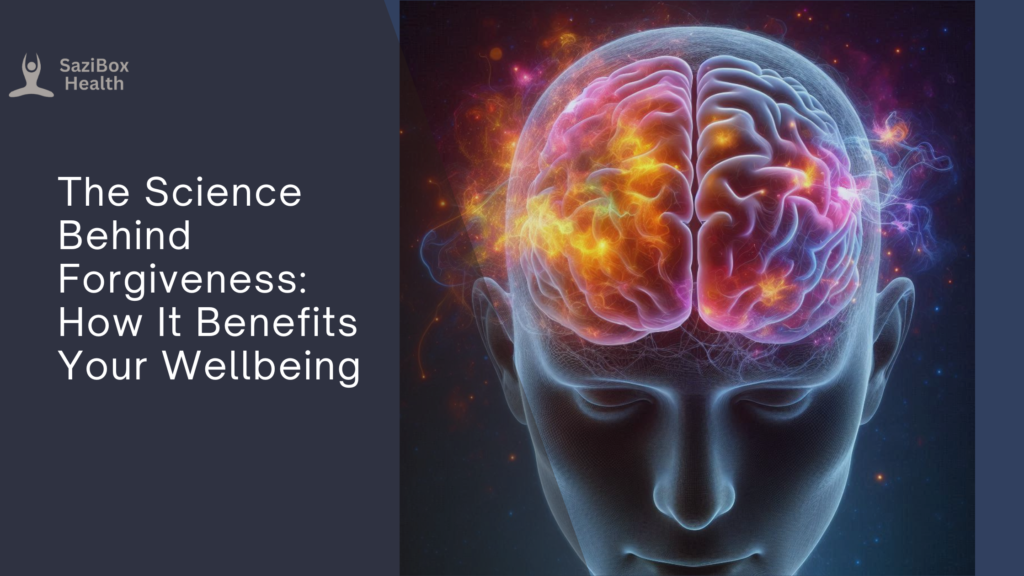
Have you ever been deeply hurt by someone’s actions or words? The sting of betrayal, anger, and resentment can feel like a heavy weight to carry. But what if there was a key to unlocking emotional healing and letting go? That key is forgiveness.
Why Forgive? It’s Not What You Think
Forgiveness isn’t about excusing bad behaviour or saying what happened wasn’t a big deal. It’s about releasing yourself from the emotional prison of anger and resentment. It’s about taking back control of your own peace of mind.

Science Backs the Power of Forgiveness:
Numerous studies show forgiveness benefits both your mental and physical health. Here are some key findings:
- Reduced stress and anxiety (Stanford University)
- Lower blood pressure (University of North Carolina)
- Improved immune function (University of California, Los Angeles)

- Stronger relationships (Greater Good Science Center)
The Forgiveness Journey: From Stuck to Letting Go
Forgiveness is a personal journey. Here are some practical steps to help you cultivate it:
- Acknowledge Your Pain: Don’t bottle it up. Allow yourself to feel the hurt and anger.
- Consider the Other Person’s Perspective: Try to understand, not condone, their actions.
- Practice Empathy: Recognize the humanity behind their actions, not condoning them.
- Write a Forgiveness Letter (Optional): Express your feelings without sending it. This is a cathartic release.
- Focus on the Present and Future: Holding onto anger hurts you. Choose to let go and move forward with a lighter heart.

Remember: Forgiveness is a process, not an event. Be patient with yourself.
Pro Tip: Don’t Forget Self-Forgiveness
Holding onto guilt or self-blame can also hinder emotional healing. Consider the power of self-forgiveness. Acknowledge your mistakes, learn from them, and move forward without self-recrimination.
Interactive Exercises: Deepen Your Forgiveness Journey
Here are two interactive exercises from SaziBox Health to deepen your understanding of forgiveness:
Exercise 1: The Forgiveness Letter (Optional):
- Grab a pen and paper (or open a note) and write a letter to the person who hurt you.
- Pour out your feelings. Express your hurt and anger freely.
- This letter isn’t for them – it’s for releasing your emotions.
- Once you’ve expressed everything, write a paragraph about letting go. Acknowledge their role, but emphasize your choice to move forward without anger or resentment.
- Close the letter with a statement of forgiveness.
- Reread the letter and reflect on the emotions you feel.
Read More
Change Your Mindset, Master Your Life
Exercise 2: The Forgiveness Meditation:
- Find a quiet space and sit comfortably with your eyes closed.
- Take a few slow, deep breaths, focusing on your inhales and exhales.
- Imagine yourself surrounded by a white light, symbolizing peace and healing.
- Bring to mind the person who hurt you. Observe your emotions without judgment.
- Visualize a positive quality of this person. Focus on this positive aspect.
- Now, silently repeat a mantra of forgiveness such as “I release the anger I hold towards Mr Arnold.”
- Continue the meditation for 5-10 minutes, focusing on releasing negativity and cultivating peace and understanding.

Beyond Forgiveness: Your Next Steps
If you’re struggling with forgiveness on your own, consider seeking professional support from a therapist or counsellor. They can provide personalized guidance and techniques to help you navigate the process.
Remember: Forgiveness is about empowering yourself to heal, grow, and build stronger, healthier relationships.
With Care,
The SaziBox Health Team
P.S. Share your thoughts and experiences with forgiveness in the comments section below! Let’s create a supportive community for emotional well-being.



